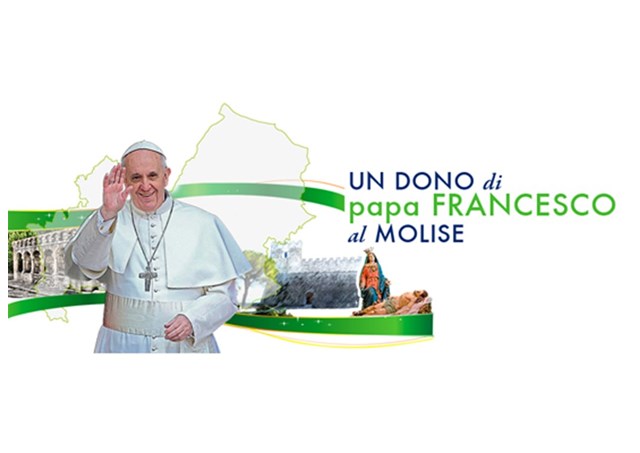
People of Molise "talking of nothing else" ahead of Saturday visit by Pope Francis

(Vatican Radio) Preparations are continuing for the visit this Saturday to the Italian region of Molise by Pope Francis. The Holy Father will visit both provinces of the eastern Italian region, which are Campobasso and Isernia.
Listen to our report:
Pope Francis is scheduled to visit seven sites during the trip, holding meetings with the world of work; with the people of the city of Campobasso ; with the sick; with the poor; with young people; with prisoners; and finally with the people of Isernia to proclaim the Celestine Year, which will mark the anniversary of the papacy of native-son Pope St. Celestine V, who was elected, and resigned, in 1294.
The theme of the visit is "God never tires of granting us pardon"
“In Campobasso there is talk of nothing but this visit: It is a small city of 50,000 inhabitants,” said Archbishop Giancarlo Maria Bregantini, the Archbishop of Campobasso-Bojano.
“We have asked the Lord for three gifts from this visit,” he told Vatican Radio. “We asked to be confirmed in the faith of the Divine Mercy - a word, mercy, of which the Pope makes immense use. Then, the culture of encounter, to increase the hope of this interweaving; and finally, the growth of charity, so we do not reject anyone. These three objectives are inserted in the prayers we say every day, and are inserted primarily in the style that we want to give to this visit.”
Archbishop Bregantini said the need for dignified work and protection of workers’ rights are focal points of the visit, as well.
“If, in Calabria, the Pope took a stand against certain things, here the theme is clearly that of work, because the lack of jobs enslaves us and makes our future uncertain,” he said. “It takes away our dignity, being deprived of work.”
“Of course you can imagine the excitement,” said Bishop Camillo Cibotti, Bishop of Isernia-Venafro. His Diocese will be the location of the Pope’s meeting with prisoners and his meeting with the sick.
This is being attentive to the needs especially of the least of us, and who is least if not the sick and imprisoned?” said Bishop Cibotti. “It is a world experiencing this demand to be ever more challenged to re-evaluate the human person, also re-evaluate his dignity, to make sure that man can be at the center of any discussion, not only those of a social character or dealing with health care, but also those of a political nature.”
| All the contents on this site are copyrighted ©. |


